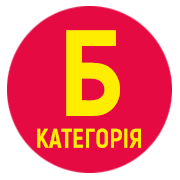STUDY OF THE INTERDEPENDENCE BETWEEN INDICATORS OF MENTAL DEVELOPMENT AND PHYSICAL FITNESS IN OLDER PRESCHOOL CHILDREN WITH DELAYED MENTAL DEVELOPMENT
DOI:
https://doi.org/10.32782/olimpspu/2023.2.2Keywords:
physical culture classes, preschool age, delay in mental development, correction, physical qualities, mental development, physical fitnessAbstract
The article is devoted to the problem of studying the peculiarities of mental development and physical fitness of children of older preschool age with delayed mental development. It has been established that children with mental retardation have low indicators of both mental development and physical fitness compared to their normally developed peers. This especially applies to such psychophysical indicators as dexterity and thinking. The relationship between indicators of mental development and physical fitness in children of older preschool age with delayed mental development was established. Determination of interdependence between the indicated indicators was carried out on the basis of correlation analysis data. As a result of the research, statistically reliable relationships were found between the indicators of dexterity and the formation of the thinking function in children of this category. Certain regularities between the formation of the mental function of thinking and the development of dexterity in children of older preschool age with a delay in mental development have been determined. Thus, the higher the level of formation of indicators of analysis, synthesis and generalization processes, the higher the level of development of accuracy of movements, dynamic balance, accuracy of spatial movements, complex manifestation of coordination abilities. There is a relationship between the formation of visual-spatial orientation (both on three-dimensional and plane objects) and the level of dexterity development in children with mental retardation. The relationship is negative, i.e. the reduction of the time required for the formation of visual-spatial orientation is associated with an increase in performance in dexterity test exercises. The conducted experimental research did not exhaust all aspects of the problem of studying the features of mental development and physical fitness of children of this category. We see the prospects for further scientific research in the search for and improvement of methods of conducting physical education classes with children of older preschool age with mental retardation.
References
Трикоз С., Блеч Г. Дитина з порушеннями інтелектуального розвитку. Харків : Ранок ; ВГ «Кенгуру», 2018. 40 с.
Миронова С., Бахмат Н. Особливості монологічного мовлення молодших школярів із інтелектуальними порушеннями. Педагогічні науки: теорія, історія, інноваційні технології. 2020. № 5–6(99–100). С. 3–11.
Пасічник В. Специфічні принципи фізичного виховання дітей дошкільного віку в умовах інклюзивної освіти. Фізична культура, спорт та здоров’я нації. 2017. Вип. 4(23). С. 203–208.
Пилюк Н. Оздоровча робота у спеціалізованому дошкільному закладі як засіб соціальної адаптації дітей з особливими потребами. Актуальні проблеми навчання та виховання людей з особливими потребами. 2009. № 6(8). С. 17–18.
Фізична реабілітація дітей із затримкою психічного розвитку / І. Подолянчук, І. Осіпчук, М. Ригун, Т. Павлюк. Науковий часопис Національного педагогічного університету імені М.П. Драгоманова. Серія 15 «Науково-педагогічні проблеми фізичної культури (фізична культура і спорт)». 2019. № 3(111). С. 141–148.
Маценко В. Психологія пізнавальних процесів : навчальний посібник. Київ : Главник, 2008. 191 с.
Круцевич Т., Воробйов М., Безверхня Г. Контроль у фізичному вихованні дітей, підлітків і молоді : навчальний посібник. Київ : Олімпійська література, 2011. 224 с.







